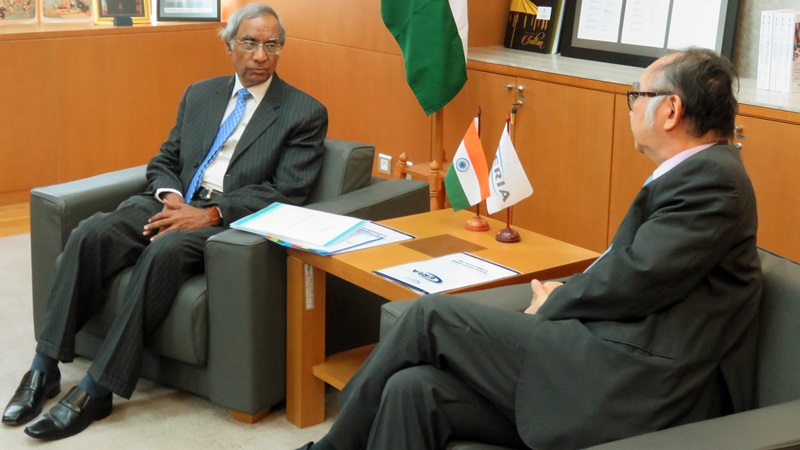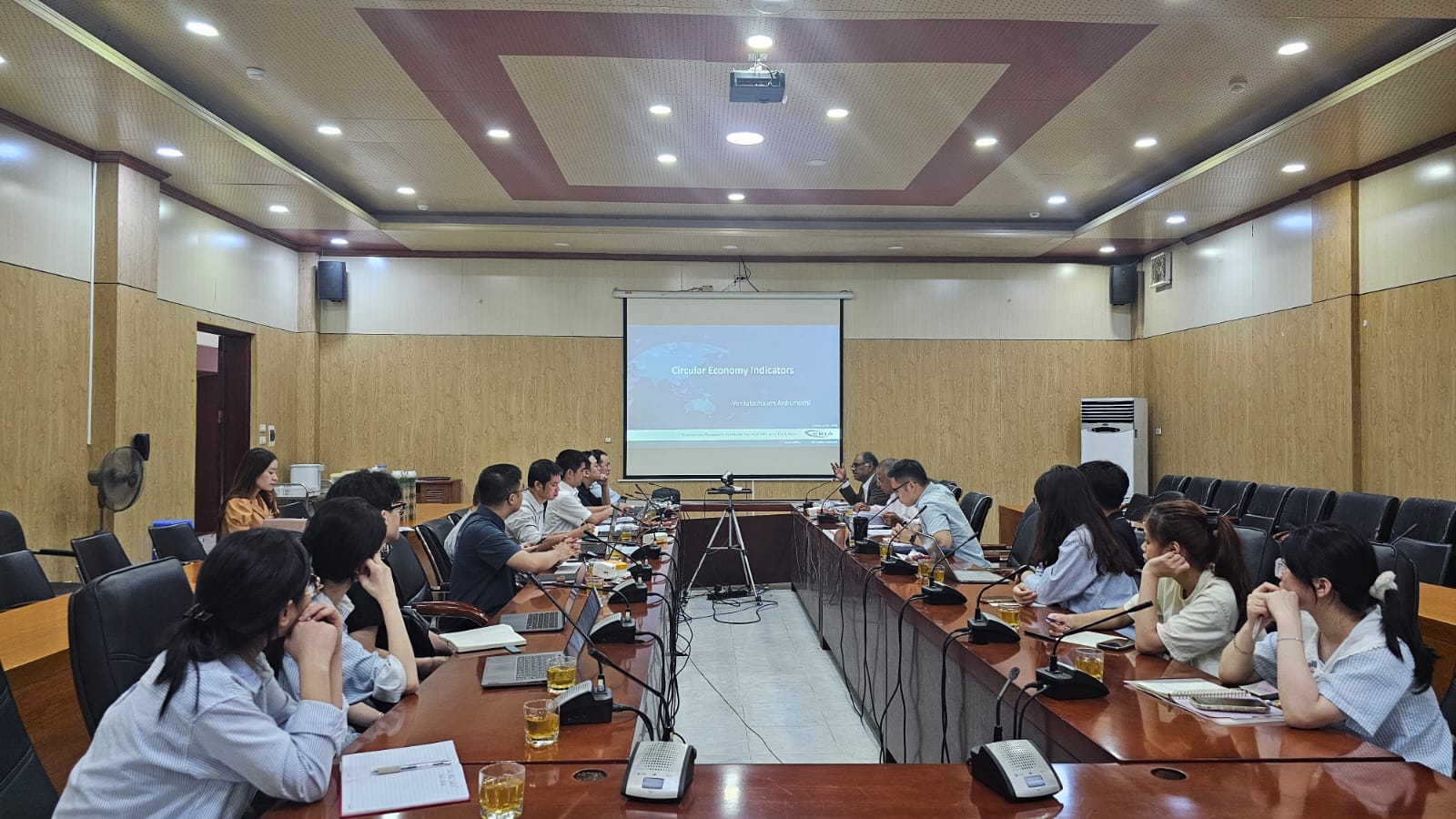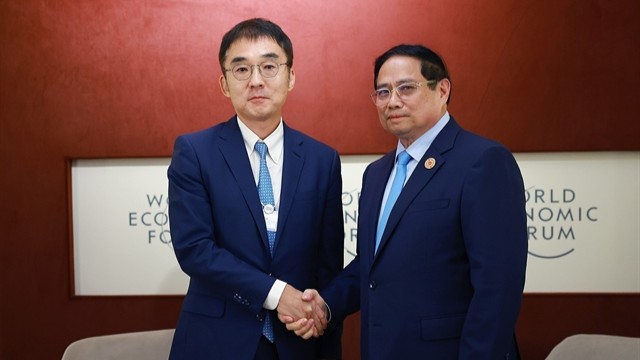Kalinga International Foundation Learns about ERIA’s Research Including Maritime Connectivity
Date:
13 July 2018Category:
NewsTopics:
Courtesy Visit, Energy, MaritimeShare Article:
Print Article:
Jakarta, 10 July 2018: ERIA welcomed a delegation from the Kalinga International Foundation (KIF) to learn about ERIA’s research activities, with special attention to energy and maritime connectivity. The esteemed delegates included Ambassador Rajiv Bhatia, Professor Amita Batra, Dr Vijay Sakuja, Professor Shankari Sundararaman, and Mr Sudhakar Mahapatra.
The Kalinga International Foundation is an independent, non-partisan think tank based in India whose mission is to analyse and propose solutions for issues related to trade, security, foreign policy, and regional cooperation. KIF strives to build meaningful relationships with other countries in the Indo-Pacific region, which is why their visit to ERIA is crucial to explore potential partnerships with ASEAN.
Dr Fauziah Zen, Senior Economist at ERIA, delivered her presentation on ASEAN maritime connectivity and the single shipping market. Dr Zen remarked that Indonesia’s ports are underutilised, but they present a great opportunity for developing trade and improving connectivity – both nationally and regionally.
In her presentation, she pointed out that despite achievements in ASEAN connectivity, there are still challenges such as different development stages, different interests, lack of funding, regulatory burdens, and a lack of a good project pipeline. She then explained the exponentially growing marine services, which ASEAN have a big role globally, in greater detail.
Dr Zen highlighted several typical problems in the region such as poor congestion management, inefficient equipment, red tapes, fragmented port operation, and non-sterile ports. She also specified challenges for ASEAN, which includes the need to pay attention to Indonesia and Philippines because both are located outside major international shipping lines, both suffered from underutilisation of potential activities, and both experienced backhaul issues.
In the last part of her presentation, Dr Zen gave a lot of suggestions for the future, taking into account trends that will shape future demand. She suggested Indonesia, the Philippines, and Thailand to modernise ports, improve hinterland connectivity, boost integration between ports and national supply chain, as well as set performance standards for ports. On the other hand, in order to improve regional connectivity, she suggested establishing networked economies in sub-regions, removing cabotage, linking major shipping lines with archipelago, building value-added services to anticipate future demand, modernizing ports and vessels, as well as investing in capacity building for human resources.
Dr Venkatachalam Anbumozhi, Senior Energy Economist at ERIA, briefed the delegates on ERIA’s recent research activities. He discussed select studies, highlighting the interest in strengthening economic connections and regional integration between the North Eastern Region of India and South East Asia. Additionally, Dr Anbumozhi spoke about smart cities, renewable energy, and natural gas utilisation in ASEAN and India.








